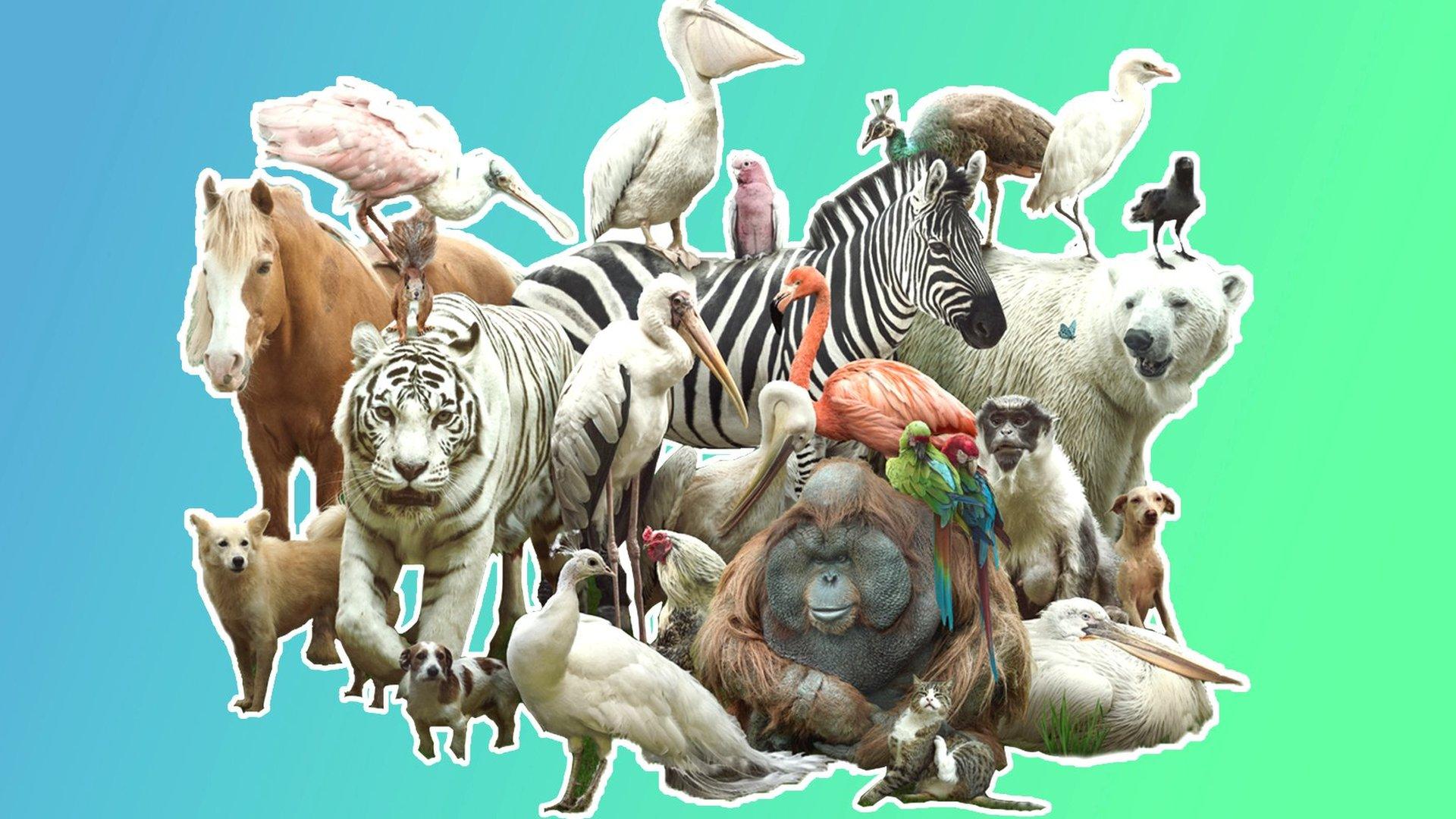Coronavirus: London Zoo faces 'perilous future'
- Published
- comments
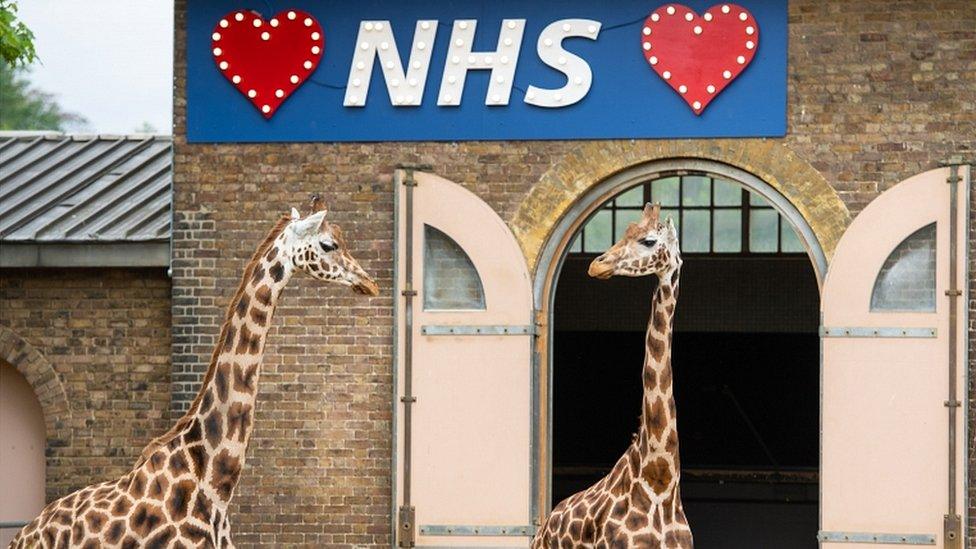
London Zoo has only ever shut for any length of time once before, for two weeks during the Blitz
London Zoo and its conservation work face an "uncertain future" without immediate support, the Zoological Society of London (ZSL) has warned.
ZSL London Zoo and its sister site Whipsnade Zoo, in Bedfordshire, have been closed to visitors since 20 March due to the coronavirus lockdown.
This has come at what is usually a peak time, when they would have expected 250,000 visitors, ZSL said.
The charity's core income has dried up while costs for staff remain the same.
London Zoo has only ever shut for any length of time once before, for two weeks during the Blitz, before it reopened at the request of the government to boost morale in the capital.
What does London Zoo look like on lockdown?
ZSL currently cares for 20,000 animals, many of which are rare and endangered.
The income from the two zoos underpins ZSL's scientific research institute and global conservation programmes, which help research diseases in wildlife, including coronaviruses.
Director general Dominic Jermey said lockdown was putting it in a "very challenging" position.
ZSL said it was struggling to obtain financial support from banks, because the organisation has no history of borrowing.
It currently operates to invest everything back into conservation and science, making it hard to generate profits to pay off a loan.
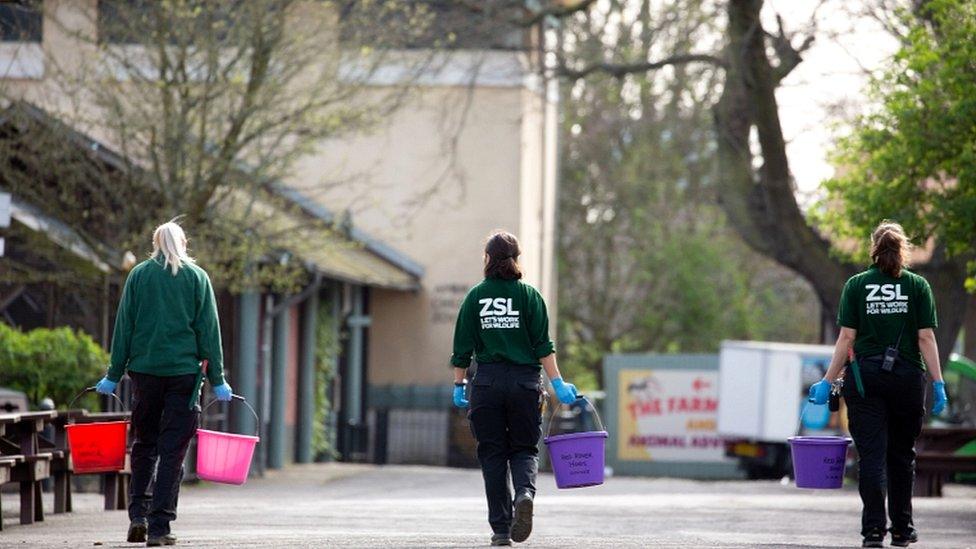
Costs for keepers and vets to care for 20,000 animals remain the same, despite a lack of income
Ministers have announced a £14m fund to support zoos hit by the pandemic lockdown but ZSL said the focus was on small grants for small zoos and an institution of its size needed much more significant support.
Mr Jermey said: "We are having conversations with very generous people who have supported us in the past, and with banks, in order to make sure the future does not remain perilous.
"But at the moment it's a very challenging moment for the organisation."
The idea that the pandemic could spell the end of London Zoo "would be absolutely unthinkable", he said.
"But the plain facts of any organisation is we can't continue to operate without any income."
Mr Jermey said ZSL was "determined to be part of the solution", with its work on wildlife diseases and, as lockdown begins to ease, by offering people an outdoor space they can experience safely.
- Published1 May 2020
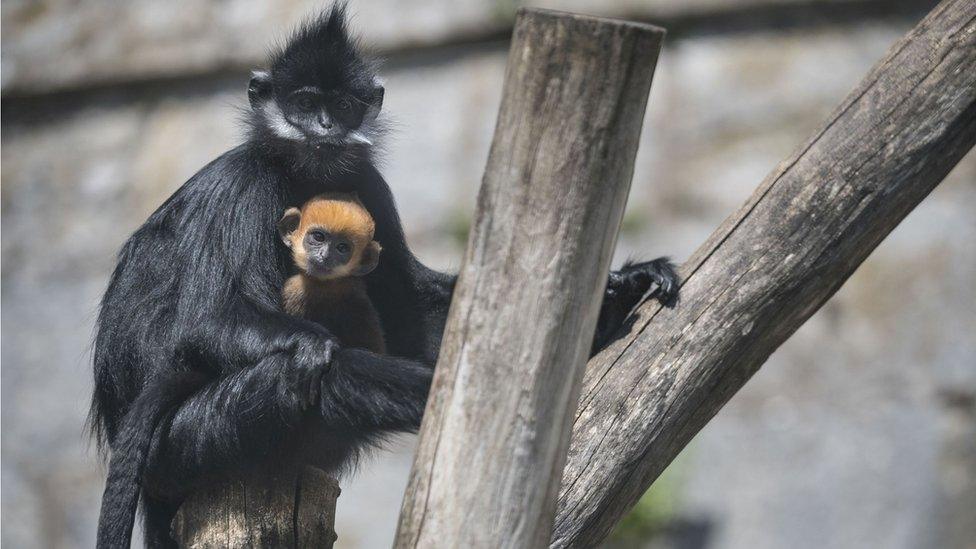
- Published28 March 2020
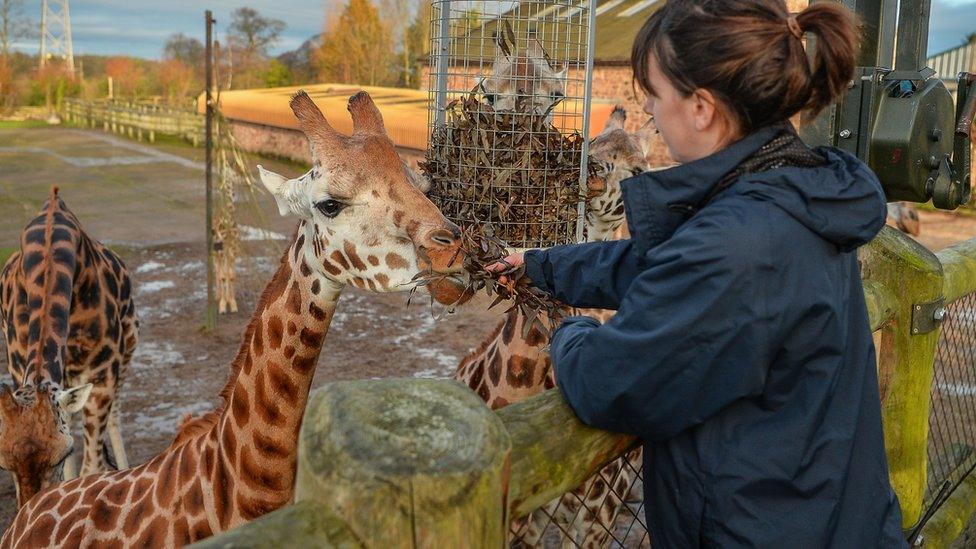
- Published6 May 2020
